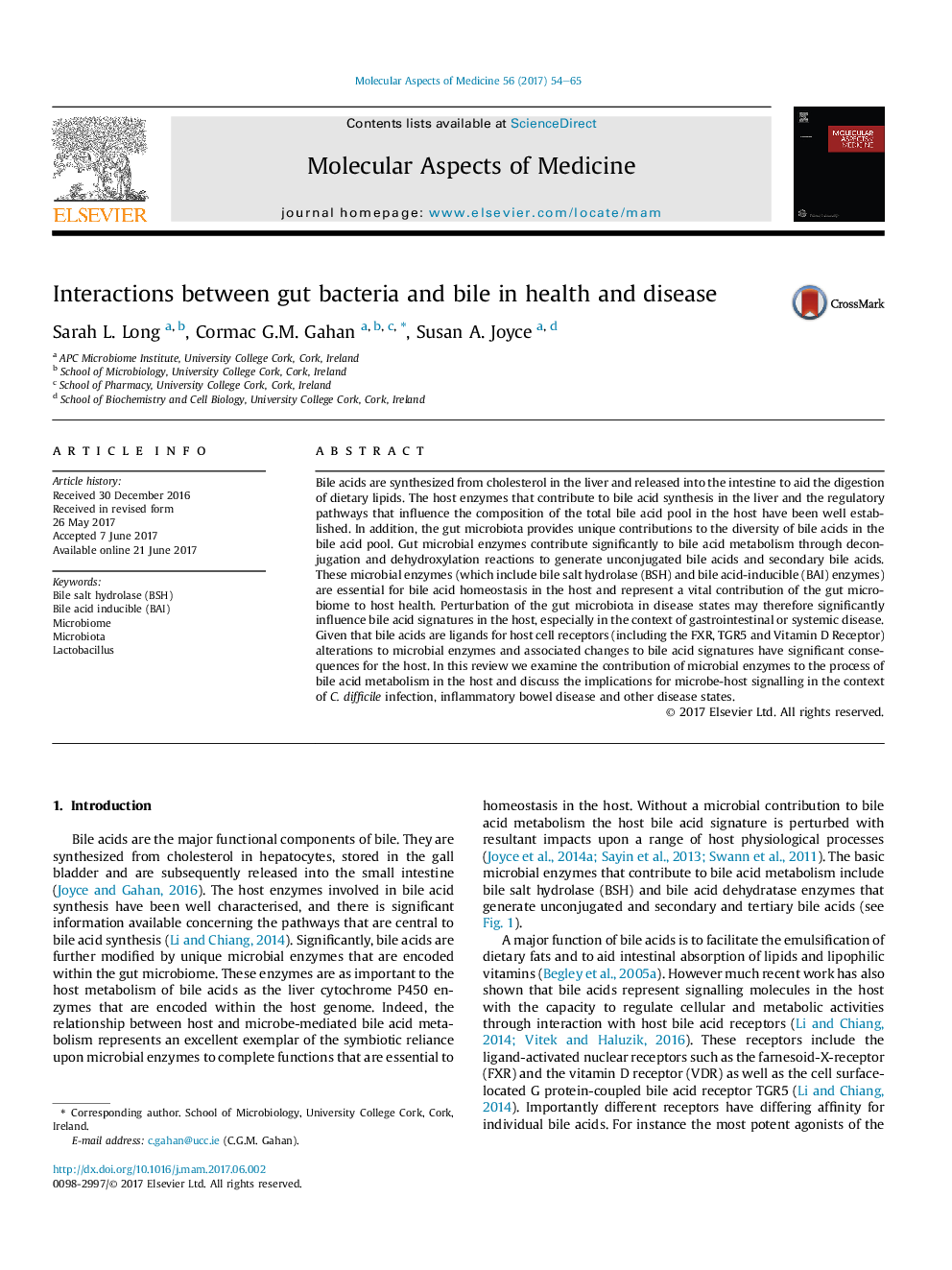| Article ID | Journal | Published Year | Pages | File Type |
|---|---|---|---|---|
| 5513814 | Molecular Aspects of Medicine | 2017 | 12 Pages |
Bile acids are synthesized from cholesterol in the liver and released into the intestine to aid the digestion of dietary lipids. The host enzymes that contribute to bile acid synthesis in the liver and the regulatory pathways that influence the composition of the total bile acid pool in the host have been well established. In addition, the gut microbiota provides unique contributions to the diversity of bile acids in the bile acid pool. Gut microbial enzymes contribute significantly to bile acid metabolism through deconjugation and dehydroxylation reactions to generate unconjugated bile acids and secondary bile acids. These microbial enzymes (which include bile salt hydrolase (BSH) and bile acid-inducible (BAI) enzymes) are essential for bile acid homeostasis in the host and represent a vital contribution of the gut microbiome to host health. Perturbation of the gut microbiota in disease states may therefore significantly influence bile acid signatures in the host, especially in the context of gastrointestinal or systemic disease. Given that bile acids are ligands for host cell receptors (including the FXR, TGR5 and Vitamin D Receptor) alterations to microbial enzymes and associated changes to bile acid signatures have significant consequences for the host. In this review we examine the contribution of microbial enzymes to the process of bile acid metabolism in the host and discuss the implications for microbe-host signalling in the context of C. difficile infection, inflammatory bowel disease and other disease states.
